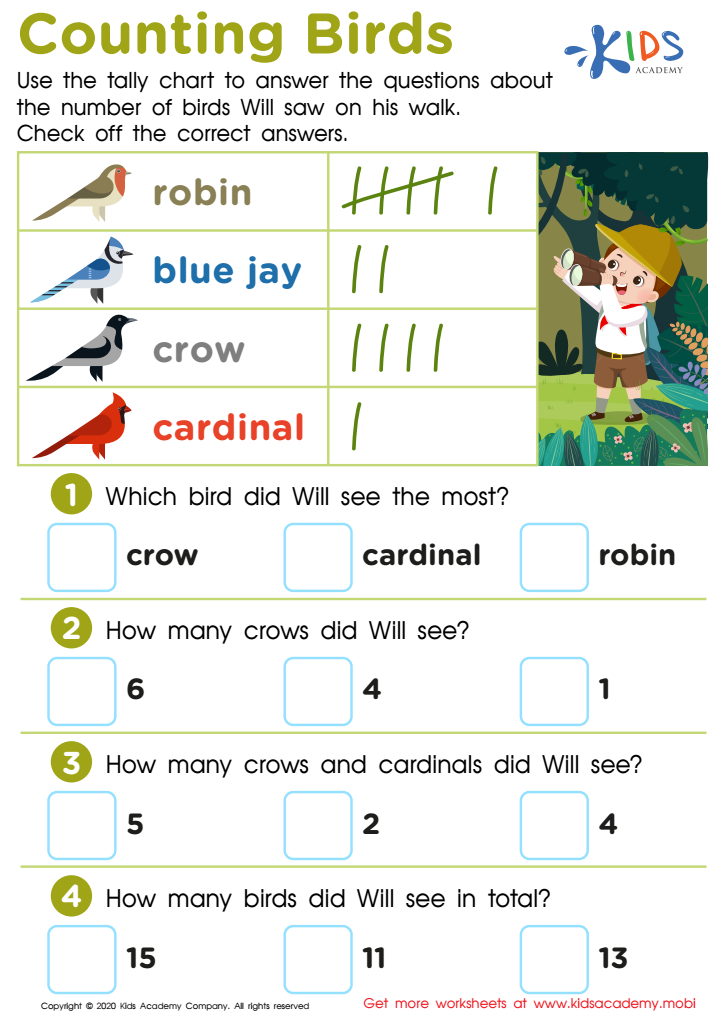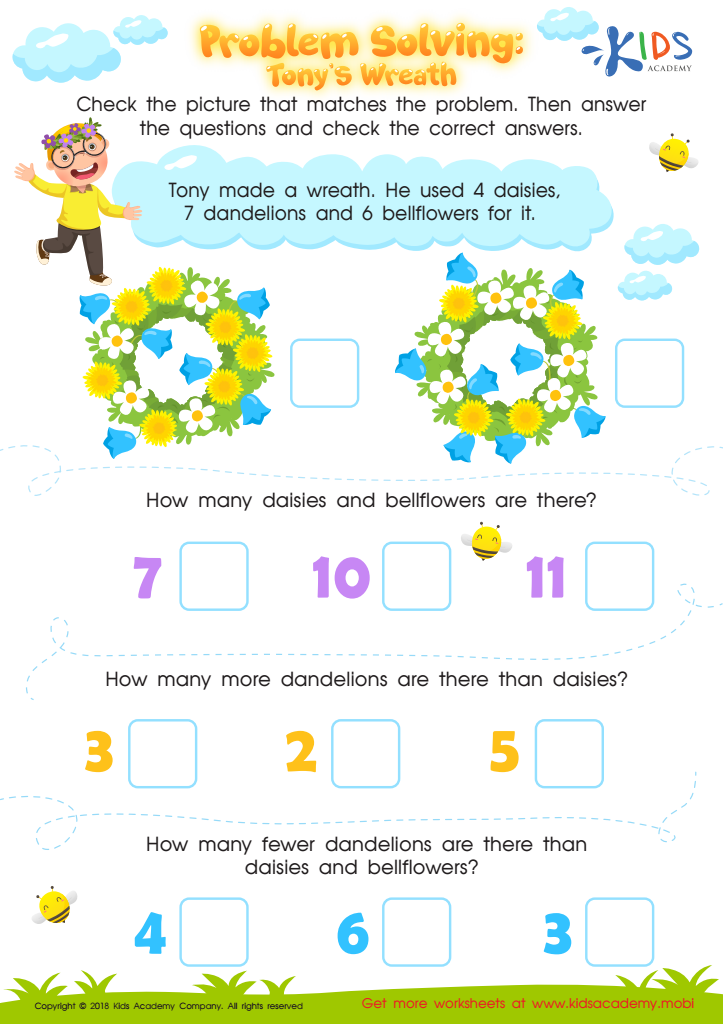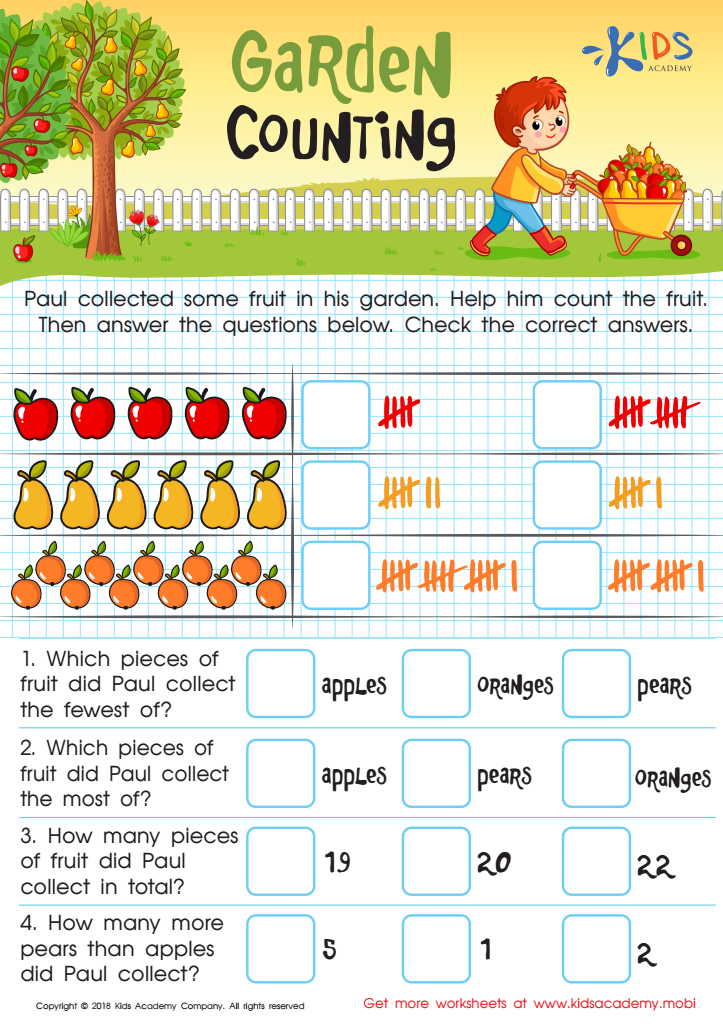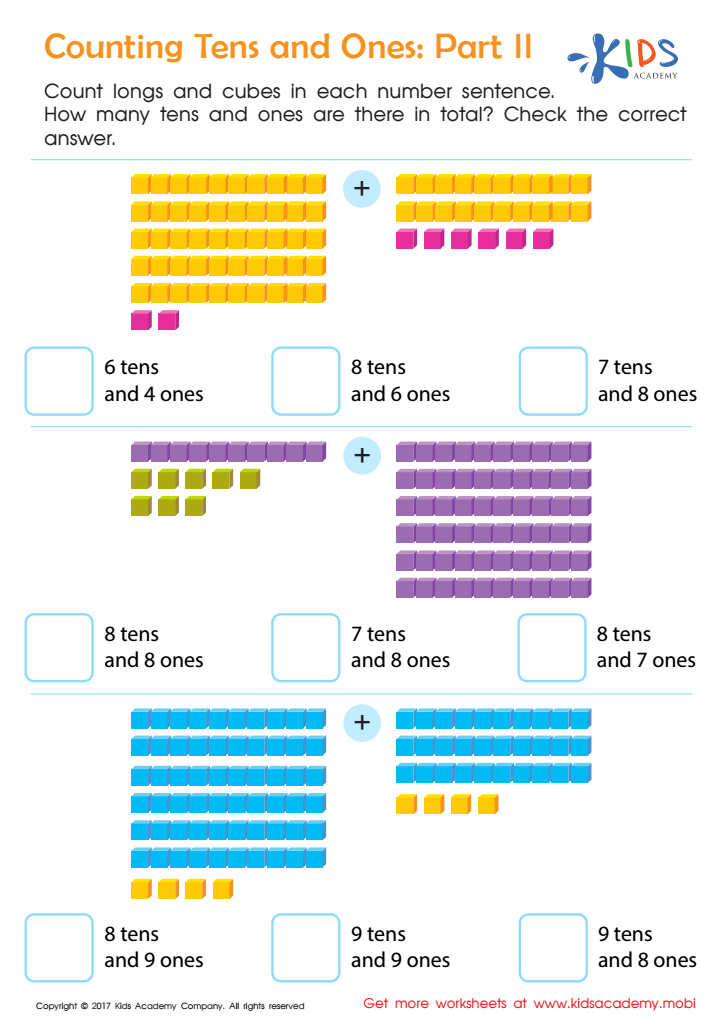Basic Addition Extra Challenge Numbers Worksheets for Ages 7-8
4 filtered results
-
From - To
Boost your child's math skills with our "Basic Addition Extra Challenge Worksheets" designed specifically for ages 7-8! These engaging and colorful worksheets present a variety of fun and stimulating addition problems that will challenge young learners and enhance their arithmetic abilities. Perfect for reinforcing classroom lessons or practicing at home, our activities encourage critical thinking, problem-solving, and confidence in math. Whether your child is embarking on basic addition concepts or ready for a few extra challenges, these worksheets will make learning mathematical skills enjoyable and effective. Download now and watch your child's problem-solving skills soar!


Counting Birds Worksheet


Problem Solving: Tony's Wreath Worksheet


Garden Counting Worksheet


Counting Tens and Ones: Part 2 Worksheet
Parents and teachers should pay close attention to Basic Addition Extra Challenge Numbers for Ages 7-8, as they play a crucial role in developing foundational math skills. At this age, students transition from simple addition to more complex numerical relationships, which are essential for their academic success in future math concepts. By introducing extra challenge numbers, parents and teachers can help children build confidence in their problem-solving abilities and enhance their critical thinking skills.
Engaging children with challenging addition problems fosters perseverance and resilience, empowering them to tackle difficulties they may encounter in math. It also encourages a growth mindset, teaching students that their abilities can improve with practice and effort. Furthermore, developing strong addition skills at this age can significantly impact later math topics, such as subtraction, multiplication, and even fractions.
Additionally, merging fun and challenge in math through games and interactive activities makes learning enjoyable, which can lead to a positive attitude toward mathematics overall. Creating a supportive environment where children are encouraged to take on challenges not only helps them excel academically but also builds essential life skills such as determination and a love for learning. In this way, fostering basic addition challenges sets the stage for lifelong success.

 Assign to My Students
Assign to My Students
















